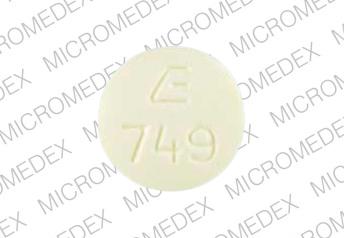Aspirin/carisoprodol/codeine Interactions
There are 806 drugs known to interact with aspirin/carisoprodol/codeine, along with 28 disease interactions, and 2 alcohol/food interactions. Of the total drug interactions, 187 are major, 600 are moderate, and 19 are minor.
- View all 806 medications that may interact with aspirin/carisoprodol/codeine
- View aspirin/carisoprodol/codeine alcohol/food interactions (2)
- View aspirin/carisoprodol/codeine disease interactions (28)
Most frequently checked interactions
View interaction reports for aspirin / carisoprodol / codeine and the medicines listed below.
- Aciphex (rabeprazole)
- Actiq (fentanyl)
- Adderall (amphetamine / dextroamphetamine)
- Afrin (oxymetazoline nasal)
- Aloxi (palonosetron)
- Ambien (zolpidem)
- Aminomine (tryptophan)
- Anafranil (clomipramine)
- Asacol (mesalamine)
- Asendin (amoxapine)
- Astelin (azelastine nasal)
- Atrovent HFA (ipratropium)
- Belladonna Tincture (belladonna)
- Benadryl (diphenhydramine)
- Bentyl (dicyclomine)
- Bromax (brompheniramine)
- Bupap (acetaminophen / butalbital)
- Buprenex (buprenorphine)
- Butisol Sodium (butabarbital)
- Bystolic (nebivolol)
- Calcium, Magnesium and Zinc (multivitamin with minerals)
- Carisoprodol Compound (aspirin / carisoprodol)
- Celexa (citalopram)
- Dexilant (dexlansoprazole)
- Klonopin (clonazepam)
- Lunesta (eszopiclone)
- Soma (carisoprodol)
- Vicodin (acetaminophen / hydrocodone)
- Wellbutrin (bupropion)
- Xanax (alprazolam)
Aspirin/carisoprodol/codeine alcohol/food interactions
There are 2 alcohol/food interactions with aspirin / carisoprodol / codeine.
Aspirin/carisoprodol/codeine disease interactions
There are 28 disease interactions with aspirin / carisoprodol / codeine which include:
- coagulation
- porphyria
- impaired GI motility
- infectious diarrhea
- prematurity
- asthma
- acute alcohol intoxication
- drug dependence
- hypotension
- intracranial pressure
- respiratory depression
- gastrointestinal obstruction
- GI toxicity
- renal dysfunction
- Reye's syndrome
- drug dependence
- renal/liver disease
- adrenal insufficiency
- liver disease
- renal dysfunction
- seizure disorders
- urinary retention
- arrhythmias
- biliary tract disease
- anemia
- dialysis
- G-6-PD deficiency
- hepatotoxicity
More about aspirin / carisoprodol / codeine
- aspirin/carisoprodol/codeine consumer information
- Compare alternatives
- Reviews (6)
- Drug images
- Side effects
- Dosage information
- During pregnancy
- Drug class: skeletal muscle relaxant combinations
- En español
Related treatment guides
Drug Interaction Classification
| Highly clinically significant. Avoid combinations; the risk of the interaction outweighs the benefit. | |
| Moderately clinically significant. Usually avoid combinations; use it only under special circumstances. | |
| Minimally clinically significant. Minimize risk; assess risk and consider an alternative drug, take steps to circumvent the interaction risk and/or institute a monitoring plan. | |
| No interaction information available. |
See also:
Further information
Always consult your healthcare provider to ensure the information displayed on this page applies to your personal circumstances.


